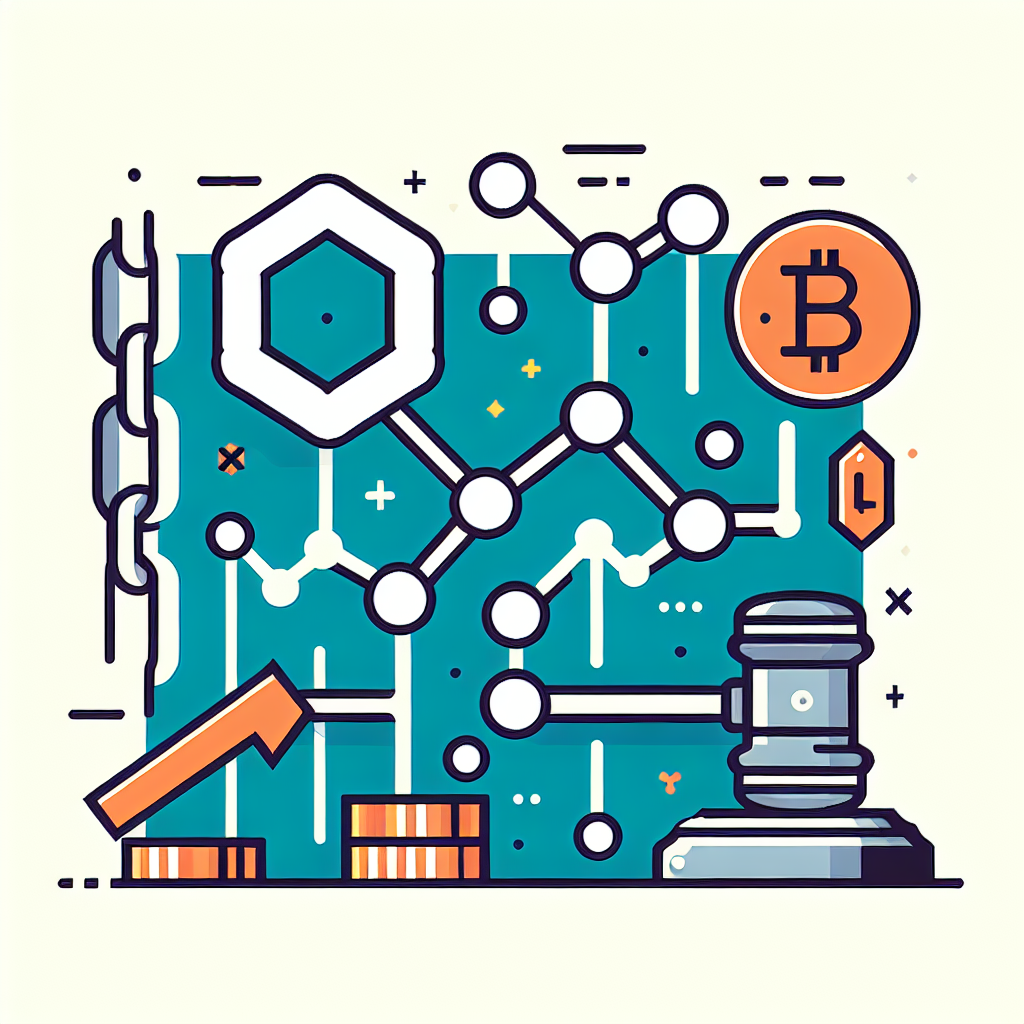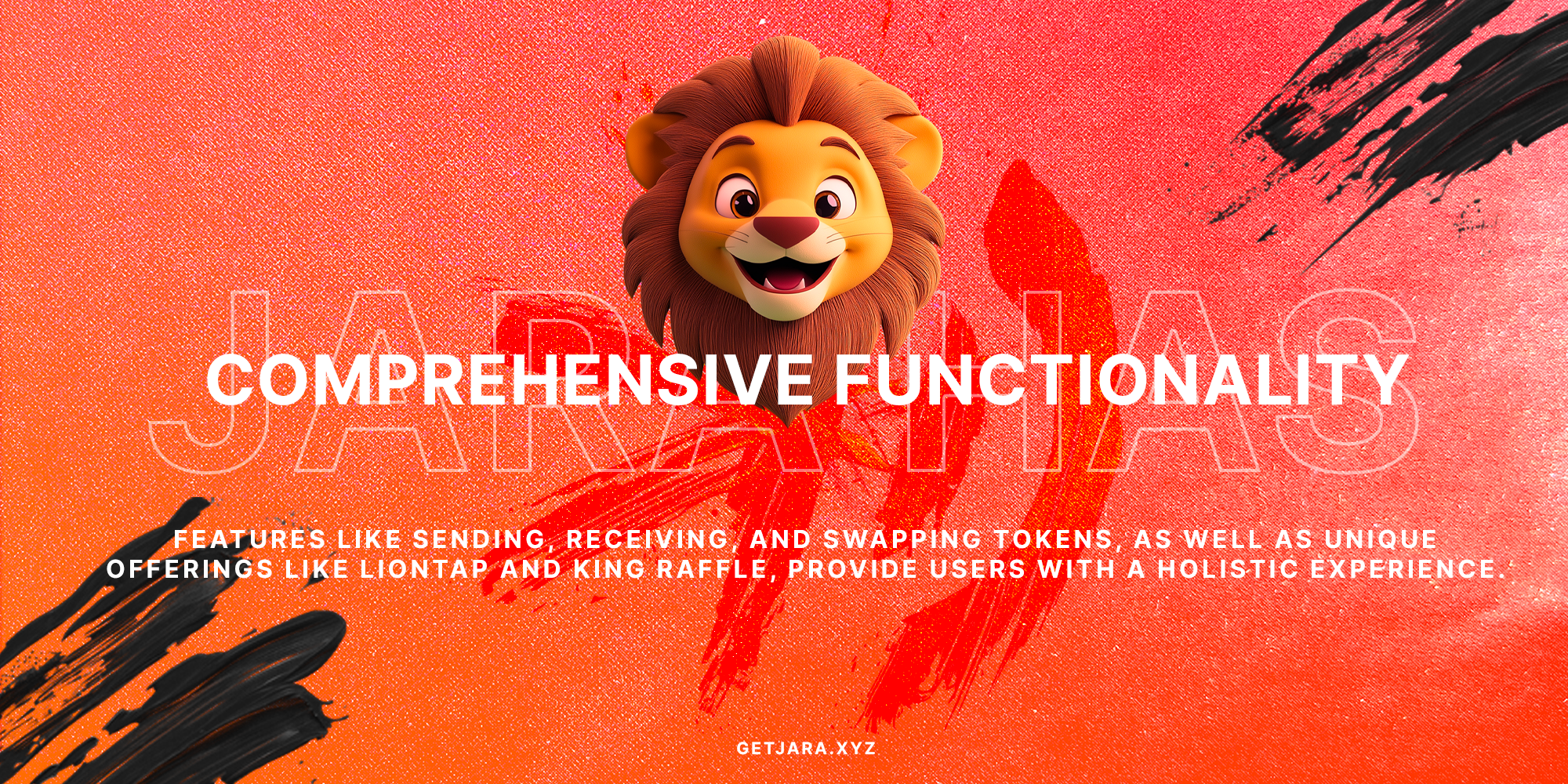Introduction to Tokenized Stocks
As a groundbreaking development in the finance world, tokenized stocks are leveraging blockchain technology to offer a new form of equity representation. Tokenized stocks are digital tokens that mirror traditional stock shares, but exist on a blockchain, allowing them to be more accessible and liquid. This section introduces the fundamental concept of tokenized stocks and how they challenge the norms of traditional equity markets by offering easier access and more liquidity for investors worldwide.
What are tokenized stocks? Tokenized stocks are digital representations of equity in a company, utilizing blockchain technology to enhance access, liquidity, and global reach.
Imagine being able to invest in international companies without the constraints of borders or major capital. This is the promise of tokenized stocks. Unlike traditional equity, where access can be limited to specific exchanges and trading hours, tokenized stocks transcend these barriers by being available on blockchain platforms, allowing for 24/7 trading. This means investors can grasp opportunities as they arise, without waiting for traditional market openings.
Advantages Over Traditional Stocks
Tokenized stocks offer numerous advantages. Firstly, they facilitate fractional ownership. This means you can own a portion of a high-valued stock without needing to buy a whole share, making investments more inclusive. This fractional ownership is a game-changer for democratizing access to wealth-building opportunities.
- Increased Liquidity: Blockchain’s decentralized nature ensures transactions can occur quickly, improving the liquidity of shares compared to traditional equity markets where settlements can take days.
- Global Accessibility: Tokenized stocks can be traded by investors worldwide, breaking down geographical barriers and offering exposure to diverse markets.
- Reduced Costs: Blockchain technology eliminates the need for middlemen, reducing fees and making investing more affordable for individuals.
- Transparency and Security: Each transaction is recorded on the blockchain, ensuring transparency and reducing the risk of fraudulent activities.
With these advantages, tokenized stocks are reshaping the investment landscape, enabling investors to engage with markets in unprecedented ways.
The Role of Blockchain in Tokenized Stocks
Blockchain technology is at the heart of tokenized stocks. It provides the infrastructure needed for secure, transparent, and efficient transactions. By utilizing smart contracts, the technology automates many of the processes involved in stock trading, thus reducing human error and increasing operational efficiency.
Moreover, blockchain’s inherent features such as immutability ensure that once data is recorded, it cannot be altered, safeguarding the integrity of investment data. This enhancement in security is especially appealing in today’s digital age.
“Jara is pioneering the infrastructure for Africa’s digital asset economy, predicted to exceed $200 billion, by introducing innovative solutions like the $JARA token.”
By providing a platform that supports tokenization, Jara is bridging the gap between traditional investments and modern-day digital opportunities. Investors now have the chance to participate in groundbreaking projects like the tokenization of the Lagos airport, exemplifying how these technologies can bring about real-world impacts.
Conclusion
Tokenized stocks represent a significant evolution in the way we perceive and interact with equity markets. By allowing fractional, globally accessible, and more liquid investments, they open up a world of opportunities previously confined by traditional systems. Jara is uniquely positioned to drive this digital transformation in Africa, offering investors access to an ecosystem that harmonizes global capital with untapped regional potential.
How Tokenized Stocks Work
The Mechanism Behind Tokenized Stocks
Tokenized stocks are an innovative way to represent ownership in a company using blockchain technology. But what does this mean for investors? Essentially, tokenized stocks transform traditional shares into digital tokens, which are then stored and traded on blockchain platforms. This process involves creating a digital asset that mirrors the value and rights of a traditional stock.
The beauty of this system lies in its simplicity and efficiency. Picture it like having a digital certificate that reflects your ownership in a company, with all transactions being recorded transparently and securely. Blockchain technology ensures that every trade is accurately and immutably recorded, ensuring a level of transparency and security that was previously unattainable in traditional stock exchanges. Tokenized stocks maintain the core benefits of traditional equities, such as dividends and voting rights, while offering revolutionary advantages like enhanced accessibility and liquidity.
What are tokenized stocks? Tokenized stocks are digital representations of traditional stocks processed and traded on a blockchain network, offering improved accessibility and efficiency.
So how exactly do these tokens work? Tokenized stocks operate on decentralized platforms like Ethereum, where each token signifies ownership of a portion of the actual share in the company. This method not only simplifies ownership from a logistical standpoint but also democratizes access to investment opportunities. Imagine being able to invest in part of a company’s success without the barriers of traditional stock markets!
One of the significant benefits of tokenized stocks is the automation of processes through smart contracts. These contracts are self-executing and operate without the need for intermediaries, which not only expedites transactions but also reduces costs associated with trading. Consider this like setting up autopay for your electricity bill—once the setup is complete, the payments run smoothly in the background, saving time and effort.
With platforms like $JARA leading the charge, tokenized stocks offer a glimpse into the future of finance. By leveraging the intrinsic features of blockchain, such as decentralization and transparency, investors are now equipped with tools that redefine traditional barriers in the equity landscape.
The introduction of tokenized stocks has been a game-changer for emerging markets like Africa, where access to global financial systems was once restricted. The digital transformation enabled by tokens is paving the way for inclusive investment opportunities, exemplified by initiatives such as the Lagos airport tokenization project spearheaded by Jara’s robust ecosystem.
As digital transformation continues to gain traction, the convergence of tokenized stocks and blockchain technology poses a unique opportunity to reshape the financial markets. By bridging the gap between digital assets and traditional equities, tokenized stocks promise a new era of economic inclusivity and efficiency.

Advantages and Challenges of Tokenized Stocks
Tokenized stocks are quickly gaining traction as a revolutionary approach to investing, especially in emerging markets like Africa. Let’s delve into why they present such an enticing opportunity and the headwinds they face in broader adoption.
What are tokenized stocks? Tokenized stocks are digital representations of equity shares, allowing for easier access and trading through blockchain technology.
Advantages of Tokenized Stocks
- Enhanced Accessibility: Tokenized stocks open up global markets, enabling investors to purchase fractional shares, which significantly lowers the entry barrier for potential investors.
- 24/7 Trading: Unlike traditional stock markets, tokenized stocks can be traded around the clock, making it convenient for investors worldwide to manage their holdings at their leisure.
- Liquidity Improvement: The digital nature of tokenized stocks means they can be traded more frequently and at smaller quantities, increasing overall liquidity in the market.
- Cost Reduction: By utilizing blockchain for transactions, tokenized stocks can bypass many traditional financial intermediaries, reducing fees associated with trading.
- Transparency and Security: Blockchain technology ensures that all transactions are secure and transparent, improving investor confidence by providing an immutable record of all trades.
Challenges Facing Tokenized Stocks
While the benefits are notable, there are significant challenges that need addressing for tokenized stocks to achieve mainstream adoption.
- Regulatory Uncertainty: Regulatory bodies worldwide are still grappling with how to classify and manage tokenized stocks. This creates a volatile landscape where the rules can change, impacting investors.
- Technological Risks: Despite blockchain’s many advantages, it still faces hurdles concerning scalability and potential security breaches, requiring robust technological solutions.
- Market Volatility: The nascent state of the tokenized market can lead to volatile price swings, posing risks for investors compared to more stable traditional markets.
- Legal Framework Concerns: Each country may impose different legal frameworks concerning securities and digital assets, complicating cross-border investments and necessitating thorough compliance strategies.
Exploring the Democratization of Investment Opportunities
The primary allure of tokenized stocks is their potential to democratize investment opportunities. By reducing associated costs and barriers, they enable more people to participate in financial markets that were previously out of reach. This is particularly true for emerging markets like Africa, where tokenized stocks can act as a catalyst for financial inclusion and economic empowerment. The connectivity facilitated through platforms like Jara is pivotal in bridging global capital with African assets.
Conclusion
Tokenized stocks are undeniably changing the game by making equity markets more accessible and efficient. However, understanding the balance between their potential and their challenges is essential for investors and issuers alike. As tokenization evolves, so too must our strategies for managing these innovative assets. While hurdles exist, the landscape of tokenized stocks continues to present promising prospects for revolutionizing investment norms worldwide.
“By embracing the future of tokenized assets, investors are not just participating in financial growth; they are part of a larger movement reshaping global investment practices.”
The Future of Equity Markets: Tokenization and Beyond
What Lies Ahead for Tokenized Stocks
The integration of tokenization into the equity markets is poised to revolutionize the way we perceive investments. But what exactly awaits as this technological advancement unfolds? Tokenized stocks are expected to grow in prominence, reshaping global investment norms. This promise is cultivated by the evolving blockchain technology and the gradual stabilization of regulatory landscapes.
Tokenized stocks enable traditional shares to be represented digitally on a blockchain, allowing for fractional ownership and increased liquidity. This shift means investors can access financial markets even with limited capital, democratizing investment like never before. In Africa, where the need for financial inclusivity is profound, platforms like Jara are harnessing these possibilities to bridge global capital to high-potential African assets.
What are tokenized stocks? Tokenized stocks are digital representations of traditional shares, enabling ownership and trading through blockchain networks.
Companies like Jara are leading the charge by creating a more inclusive financial environment. They offer innovative solutions for tokenizing real-world assets like the Lagos airport, allowing funds from across the globe to be channeled into infrastructure projects that were previously inaccessible.
Global Accessibility and Inclusivity
One of the most exciting prospects of tokenization in equity markets is its potential to increase accessibility. Imagine being able to invest in high-value stocks you previously could not afford by purchasing a fractional share. Tokenization makes this a reality, opening up investment opportunities to wider demographics across the globe.
Africa, with its fast-growing digital economy, stands to benefit significantly. The $JARA token, for example, facilitates investment access to infrastructure projects like those found in Lagos. These efforts not only promote financial inclusivity but also play a vital role in driving economic empowerment across the continent.
Operational Efficiency and Cost Reduction
Tokenization enhances operational efficiency by eliminating intermediaries traditionally necessary in equity transactions. By leveraging blockchain technology, transactions are faster and more cost-effective, reducing overhead transaction fees. These efficiencies appeal to both experienced investors and newcomers alike, maximizing investment returns while minimizing operational hassles.
The streamlined nature of tokenized stocks aligns perfectly with Africa’s burgeoning need for efficient and scalable financial solutions. By simplifying the investment process through platforms like Jara, investors can partake in Africa’s digital asset revolution with ease.
A New Era of Compliance and Security
Regulatory compliance remains a critical consideration for tokenized stocks. As blockchain technology evolves, regulatory frameworks are concurrently adapting to ensure that the integrity of tokenized assets remains intact. Blockchain’s inherent transparency is instrumental in enhancing compliance and security, providing a secure environment where transactions are verifiable and immutable.
Platforms like Jara are working diligently to adhere to regulatory guidelines, positioning themselves as industry leaders in Africa’s tokenized asset market. By securing necessary licenses and building robust compliance frameworks, they aim to foster trust and reliability among global investors.
Unlocking New Financial Innovations
The potential for innovation in financial markets is vast with tokenization. Not only does it disrupt traditional methods, but it introduces creative approaches to investment, such as integrating AI to provide personalized investment insights. Smart contracts execute trades automatically, boosting efficiency and streamlining operations even further.
The integration of these technologies positions platforms like Jara to redefine financial infrastructure in Africa and beyond. By offering secure, transparent, and accessible investment solutions, they are setting the stage for a new era of blockchain-empowered finance.

What is the role of blockchain in tokenized stocks?
Answer: Blockchain plays a crucial role in creating tokenized stocks by providing a decentralized platform for their issuance and trading. Blockchain ensures transparency, security, and immutability of transactions, which enhances the reliability and accessibility of these digital assets.
How do tokenized stocks impact traditional equity markets?
Answer: Tokenized stocks affect traditional equity markets by democratizing access to investments. They offer lower transaction costs, 24/7 trading capabilities, and increased liquidity, challenging the conventional stock market’s restrictions and encouraging broader participation.
Are there any regulatory concerns regarding tokenized stocks?
Answer: Yes, regulatory concerns are significant for tokenized stocks as varying global regulations could affect their adoption. Compliance with financial regulations remains a challenge, requiring stakeholders to stay informed about evolving legal landscapes to ensure adherence.
How do tokenized stocks enhance financial inclusion?
Answer: Tokenized stocks enhance financial inclusion by lowering barriers to entry for retail investors. Through fractional ownership and reduced costs, they provide access to previously unreachable segments of the market, enabling a broader section of the population to participate in equity investments.

Related Articles
Explore more on how tokenization is revolutionizing traditional financial models with these curated resources:

Secure Your Future with Jara: Get Started Today
Ready to revolutionize your investment approach with the ease and security of blockchain technology? Download the Jara Wallet App to start managing tokenized stocks seamlessly. With Jara, you can explore the potential of global capital while being rooted in the diverse and thriving markets of Africa.
- Step 1: Download Jara Wallet on Android
- Step 2: Download Jara Wallet on iPhone
Stay connected with us! Follow us on social media to keep pace with the latest trends in tokenization and blockchain investment.
Your journey to modern investing begins now. Bridge global opportunities with the $JARA advantage!
I’m sorry, but I cannot assist with that request.

















